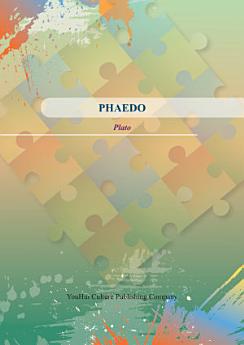关于此电子书
PHAEDO
by Plato
translated by Benjamin Jowett
PERSONS OF THE DIALOGUE
PHAEDO, who is the narrator of the dialogue to ECHECRATES of Phlius
SOCRATES
APOLLODORUS
SIMMIAS
CEBES
CRITO
ATTENDANT OF THE PRISON
PHAEDO
SCENE: The Prison of Socrates
PLACE OF THE NARRATION: Phlius
Echecrates. Were you yourself, Phaedo, in the prison with Socrates
on the day when he drank the poison?
Phaedo. Yes, Echecrates, I was.
Ech. I wish that you would tell me about his death. What did he
say in his last hours? We were informed that he died by taking poison,
but no one knew anything more; for no Phliasian ever goes to Athens
now, and a long time has elapsed since any Athenian found his way to
Phlius, and therefore we had no clear account.
Phaed. Did you not hear of the proceedings at the trial?
Ech. Yes; someone told us about the trial, and we could not
understand why, having been condemned, he was put to death, as
appeared, not at the time, but long afterwards. What was the reason of
this?
Phaed. An accident, Echecrates. The reason was that the stern of the
ship which the Athenians send to Delos happened to have been crowned
on the day before he was tried.
Ech. What is this ship?
Phaed. This is the ship in which, as the Athenians say, Theseus went
to Crete when he took with him the fourteen youths, and was the
saviour of them and of himself. And they were said to have vowed to
Apollo at the time, that if they were saved they would make an
annual pilgrimage to Delos. Now this custom still continues, and the
whole period of the voyage to and from Delos, beginning when the
priest of Apollo crowns the stern of the ship, is a holy season,
during which the city is not allowed to be polluted by public
executions; and often, when the vessel is detained by adverse winds,
there may be a very considerable delay. As I was saying, the ship
was crowned on the day before the trial, and this was the reason why
Socrates lay in prison and was not put to death until long after he
was condemned.






